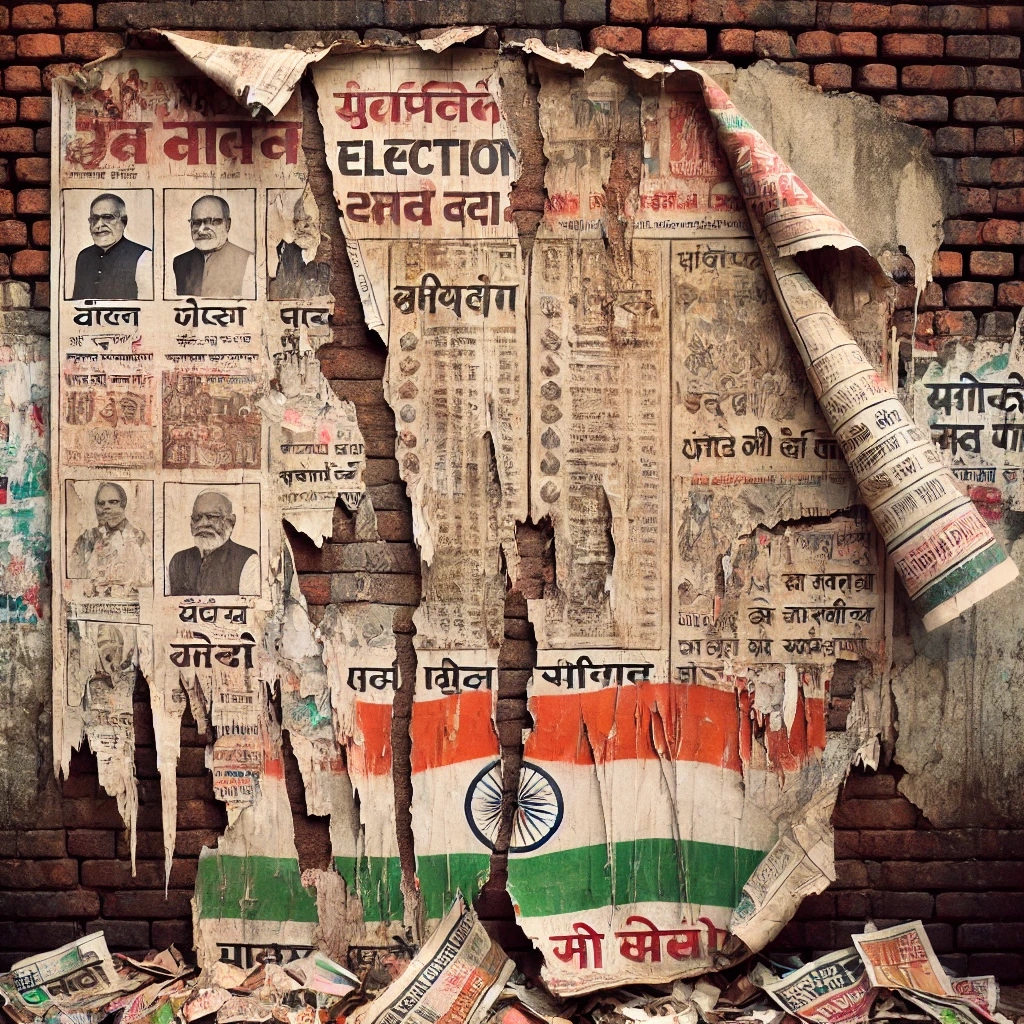
Trust in politics is fragile—hard to build, easy to lose. Indian politicians often start as torchbearers of change, promising reform, transparency, and a new dawn of governance. But over time, their luster fades, and disillusionment sets in. The cycle repeats itself with alarming predictability.
I witnessed this firsthand in my college years when the anti-corruption movement led by Anna Hazare was hijacked by Delhi’s ex-chief minister. At the time, I was too young to grasp the intricate politics at play, but even then, I found Arvind Kejriwal pretentious. Coming from Uttar Pradesh, I had developed an instinct for spotting political hypocrisy, even without a deep understanding of polity.
Yet, Kejriwal managed to win over the masses. He positioned himself as the “Kattar Imaandaar” (honestly uncompromising) leader that Delhi needed. The Aam Aadmi Party (AAP) was born from this momentum, and Kejriwal’s meteoric rise culminated in his election as Delhi’s chief minister in 2015. Ironically, he allied with the very Congress party he had vehemently opposed during his protest days. His party won re-election in 2020, but as history often teaches us, “Power can be achieved by many but handled by few.” His governance faltered, and by 2025, the voters turned their backs on him.
This pattern is not unique to Kejriwal. Indian politics has seen numerous leaders rise as symbols of hope, only to later face the wrath of an angry, disillusioned electorate. So, why does this keep happening?
The Allure of Power Corrupts Even the Best Intentions
Many politicians start their careers as activists, reformers, or bureaucrats who genuinely want to serve the public. However, once they taste power, priorities shift. The system tempts them with backdoor dealings, compromises, and power struggles. Ideals take a backseat to political survival.
The “Messiah Syndrome” Fails in the Long Run
Indian voters often place immense faith in a single leader rather than institutions. This “Messiah Syndrome” elevates politicians to god-like figures. However, no leader can single-handedly fix systemic issues. Once they fail to deliver on impossible expectations, the very people who once worshipped them turn against them.
Political Expediency Over Principles
Kejriwal’s decision to ally with Congress after building his brand on an anti-Congress stance is a textbook case of political expediency trumping principles. Indian politicians frequently make ideological U-turns when it suits them—alliances shift overnight, promises vanish, and manifestos become mere election gimmicks. The electorate remembers these betrayals.
Performance Matters More Than Promises
Winning elections is one thing; governing effectively is another. While politicians may initially ride a wave of public sentiment, they must deliver results to maintain trust. Poor governance, administrative failures, and unfulfilled promises eventually erode their credibility. Kejriwal’s inability to sustain his early momentum led to his downfall.
The “Anti-Incumbency Curse” in India
Unlike Western democracies, where leaders often enjoy multiple terms if they perform well, Indian politics has a strong anti-incumbency factor. Voters are quick to discard leaders they feel have overstayed their welcome. The expectation of immediate change, combined with deep-rooted cynicism, often leads to a revolving door of leadership.
Scandals, Corruption, and Broken Ethics
Even those who enter politics with a clean image often find themselves entangled in corruption scandals over time. Indian political history is littered with leaders who once championed integrity but later succumbed to the system’s vices. Once a leader is seen as just another corrupt politician, public trust is nearly impossible to regain.
Can This Cycle Ever Be Broken?
For Indian politics to evolve, voters must shift their focus from individuals to institutions, policies, and governance metrics. Blind faith in charismatic leaders will only lead to repeated disappointments. Moreover, political accountability must be strengthened through stricter laws, independent watchdog institutions, and active public participation beyond elections.
Kejriwal’s downfall in 2025 is just one example of a broader trend—leaders rise, gain public trust, and eventually fall when they fail to uphold their promises. The real question isn’t why politicians lose trust, but rather why voters continue to be fooled by the same cycle. Perhaps, when the electorate learns to demand more than just rhetoric, Indian politics will see a real transformation.
Edited By: Pragya A. Tripathy
